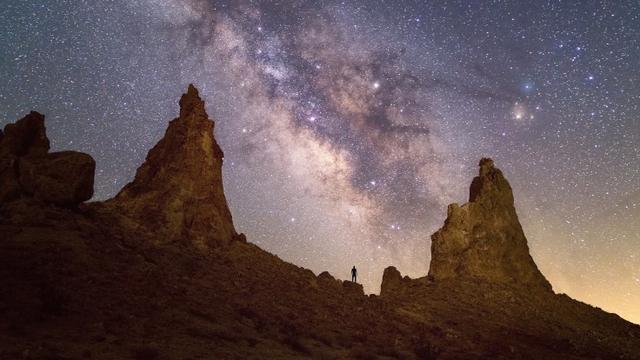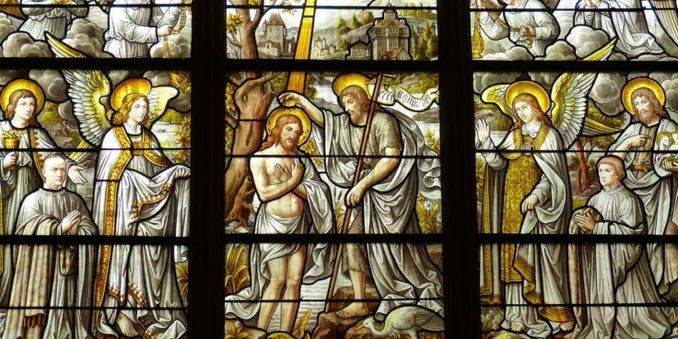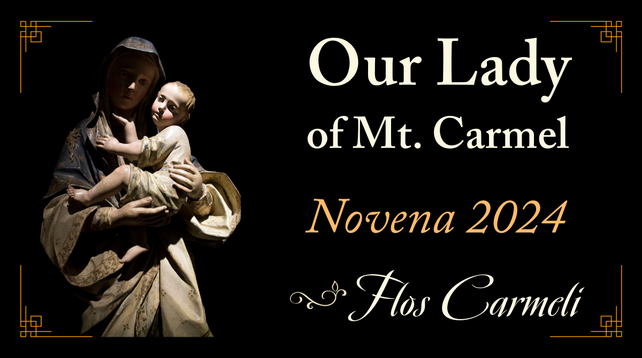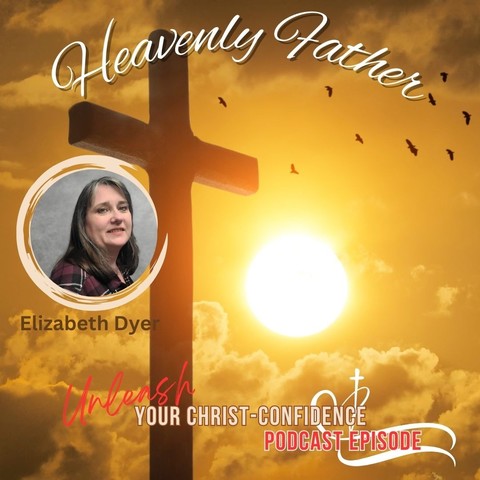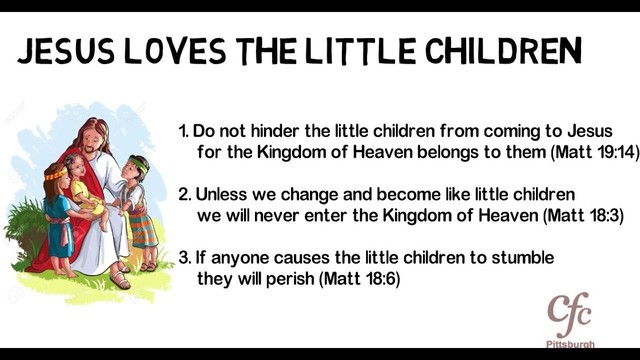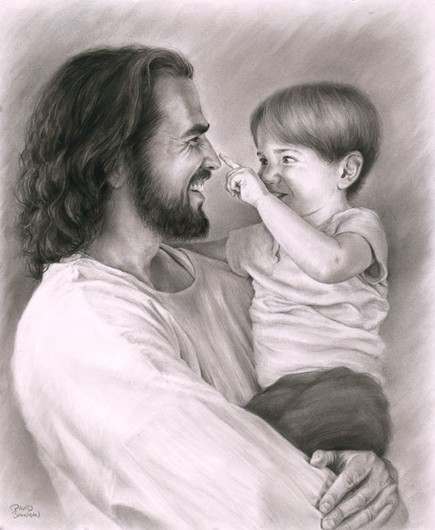Discover how Heavenly Father's patience and love are gifts we don't deserve. Understand the importance of humility and shedding pride to reflect His light, striving for spiritual growth in an imperfect world. #HeavenlyFather #patience #love #humility #spiritualgrowth
#HeavenlyFather
Light of the World (Christian Music) = Share in this new celebration 🙌 of faith! - #God #Jesus #TheLord #Praise #ChristianMusic #Bible #Music #Song #Light #Salvation #Path #Purpose #FaithJourney #ChristsGuidance #Hope #Inspiration #HolySpirit #Grace #Redemption #DivineLove #EternalLight #HeavenlyFather #Prayer #Scriptures #Strength #Comfort #Miracles #Worship #Praise #Peace #Courage #Community #Devotion - https://www.youtube.com/watch?v=fUE4pQbGbHA
We express heartfelt gratitude to our Heavenly Father, acknowledging we are unworthy of His grace. Despite our separation, He continuously seeks us, offering forgiveness with open arms. Experience the power of prayer and divine love. #PrayerOfGratitude #HeavenlyFather #DivineLove #Forgiveness #Faith #Gratitude #Christianity #Prayer #GodsGrace #ReligiousVideo
Embark on a spiritual journey with us as we explore John Chapter 17, where Jesus prays to the Father in Heaven. Discover the profound meaning of eternal life and the glorification of the Son. Join us in understanding this pivotal moment! #John17 #JesusPrayer #EternalLife #HeavenlyFather #SpiritualJourney #BibleStudy #ChristianFaith #GospelTruth #FaithExploration #Theology
Quote of the day, 22 March: St. Teresa of Avila
Our Father, who art in heaven
O Son of God and my Lord! How is it that You give so much all together in the first words? Since You humble Yourself to such an extreme in joining with us in prayer and making Yourself the Brother of creatures so lowly and wretched, how is it that You give us in the name of Your Father everything that can be given?
For You desire that He consider us His children, because Your word cannot fail [Allusion to Mt 24:35; Mk 13:31; Lk 21:33.] You oblige Him to be true to Your word, which is no small burden since in being Father He must bear with us no matter how serious the offenses.
If we return to Him like the prodigal son, He has to pardon us [Allusion to Lk 15:11-32.] He has to console us in our trials. He has to sustain us in the way a father like this must.
For, in effect, He must be better than all the fathers in the world because in Him everything must be faultless. And after all this He must make us sharers and heirs with You [Allusion to Ep 3:15; 2 Pt 1:4.].
Saint Teresa of Avila
The Way of Perfection, chap. 27, no. 2
Teresa of Avila, St. 1985, The Collected Works of St. Teresa of Avila, translated from the Spanish by Kavanaugh, K; Rodriguez, O, ICS Publications, Washington DC.
Featured image: The Return of the Prodigal Son is an oil on canvas painting created by Rembrandt Harmenszoon van Rijn (Dutch, 1606–1669) around the year 1668. It is part of the European fine art collection in The State Hermitage Museum in Saint Petersburg, Russia.
🕊️ “He must be better than all the fathers in the world…”
St. Teresa of Avila reminds us that Christ’s prayer makes us beloved children of the Father, no matter how far we’ve wandered.
💭 What part of the prodigal son’s story do you relate to most?
💬 Let’s reflect together—share your thoughts in the comments!
#forgiveness #HeavenlyFather #OurFather #pardon #prodigalSon #StTeresaOfAvila
Join us as we explore the transformative journey from darkness to light. Discover the power of faith and the importance of keeping the love of our Heavenly Father in our hearts, while letting go of guilt and shame. Let's walk together in the light! #FaithJourney #EmbraceTheLight #HopeAndGrace #HealingPrayer #OvercomingDarkness #LoveAndFaith #CommunitySupport #MilitaryFamilies #SpiritualGrowth #HeavenlyFather
Quote of the day, 13 January: St. Edith Stein
“By this I know that you love me, if you keep my commandments” [cf. Jn 14:15].
If we are children of God we shall be led by His hand, doing His will, not our own. We shall place every care and hope in Him and be no longer troubled about ourselves and our future. This is the reason why God’s children are free and happy.
But how few even of the truly pious, even of those ready for heroic sacrifices, possess this freedom. They all walk as if they were bent down by the heavy burden of their cares and duties. They all know the parable of the birds of the air and the lilies of the field. But if they meet someone without capital or pension or insurance, and who yet lives without worrying about future, they shake their heads as if that were something extraordinary.
Indeed, if we expect from the Father in heaven that He will always provide for the income and station in life which we ourselves consider desirable, we may be very much mistaken. Only then can our trust in God remain unshaken, if it includes being prepared to accept absolutely everything from the hand of the Father, for He alone knows what is good for us.
And if one day want and the lack of even the necessities of life should be better for us than a comfortably secure income, or if we should need failure and humiliation rather than honour and reputation, we must be prepared also for this. If we do this, we can live for the present without being burdened by the future.
The words “Thy will be done” must be the rule of the Christian’s life in all their fullness. They must be the principle that regulates his day from morning to night, the course of the year, and his whole life. It then becomes the Christian’s only concern. For all other cares, the Lord will make Himself responsible; this alone will remain with us as long as we live.
From the objective point of view, it is not absolutely certain that we shall always remain in the ways of God. Just as the first man and woman became estranged from God though they had been His children, so every one of us is always balancing, as it were, on the edge of the knife between nothingness and the fullness of the divine life. Sooner or later we shall be feeling this also subjectively.
In the infancy of the spiritual life, when we have just begun to surrender ourselves to the guidance of God, we feel His guiding hand very strongly; it is clear as daylight what we have to do and what to avoid.
But it will not remain like this. If we belong to Christ, we have to live the whole Christ-life. We must mature into His Manhood, we must one day begin the Way of the Cross to Gethsemani and to Golgotha. And all sufferings that come from without are as nothing compared with the dark night of the soul, when the divine light no longer shines, and the voice of the Lord no longer speaks.
God is there, but He is hidden and silent. Why is this so?
We are speaking of the mysteries of God, and these cannot be completely penetrated. But we may well look a little into them. God became Man in order once more to give us a share in His life. This is the beginning, and this is the last end.
But between these, there is something else. Christ is God and Man, and if we would share His life, we must share both in the divine and the human life. The human nature which He took enabled Him to suffer and to die. The divine nature which He possessed from eternity gave His suffering and death infinite value and redemptive power.
Christ’s suffering and death are continued in His mystical Body and in each of His members. Every man must suffer and die. But if he is a living member of the Body of Christ, his suffering and death will receive redemptive power from the divinity of the Head.
This is the objective reason why all the saints have desired to suffer. This is not a pathological pleasure in suffering. It is true, to natural reason it appears as a perversion. But in the light of the mystery of salvation, it shows itself to be highly reasonable.
And thus, the man who is united to Christ will remain unmoved even in the dark night of feeling estranged from and abandoned by God. Perhaps divine providence is using his agony to deliver another, who is truly a prisoner cut off from God. Therefore we will say: “Thy will be done” even, and particularly so, in the darkest night.
Saint Edith Stein
The Mystery of Christmas, V. (“Thy Will Be Done”)
13 January 1931, Ludwigshafen, Germany
Stein, E 1931, The mystery of Christmas: incarnation and humanity, translated from the German by Rucker, J, Darlington Carmel, Darlington UK.
Featured image: Photographer Ian Chen captures this image of a person gazing at the Milky Way on a clear night amid the tufa spires of the Trona Pinnacles National Natural Landmark in the California Desert Conservation Area near Searles Lake, California. Image credit: ianchen0 / Unsplash (Stock photo)
#freedom #happiness #HeavenlyFather #Jesus #mystery #StEdithStein #suffering #trust #unionWithGod #willOfGod
Quote of the day, 12 January: St. John of the Cross
Where have you hidden,
Beloved, and left me moaning?
you fled like the stag
after wounding me;
I went out calling you, but you were gone.The Spiritual Canticle, stanza 1
The soul’s chief aim in this verse is not to ask for sensible devotion, in which there is neither certain nor clear possession of the Bridegroom in this life, but for the manifest presence and vision of his divine essence, in which she desires to be secure and satisfied in the next life.
The bride of the divine Song of Songs had this very idea when, longing for union with the divinity of the Word, her Bridegroom, she asked the Father: Show me where you pasture and where you rest at midday [Song 1:7]. In requesting him to disclose his place of pasture, she wanted him to reveal the essence of the divine Word, his Son. For the Father does not pasture anywhere else than in his only Son, for the Son is the glory of the Father. And in begging that he show her his place of rest, she was asking to see that same Son.
The Son is the only delight of the Father, who rests nowhere else nor is present in any other than in his beloved Son. He rests wholly in his Son, communicating to him his essence at midday, which is eternity, where he ever begets him and has begotten him.
When the soul, the bride, cries: “Where have you hidden?” she seeks this pasture, the Word, her Bridegroom, where the Father feeds in infinite glory, and she seeks the flowering bosom where he rests with infinite delight of love, deeply hidden from every mortal eye and every creature.
Saint John of the Cross
The Spiritual Canticle, st. 1, no. 5
John of the Cross, St. 1991, The Collected Works of St. John of the Cross, Revised Edition, translated from the Spanish by Kavanaugh, K and Rodriguez, O with revisions and introductions by Kavanaugh, K, ICS Publications, Washington DC.
Featured image: This stained glass window, depicting the Baptism of Christ, was crafted around 1900 by master stained glass artist Édouard Didron. It is located in bay 21 of the Basilica of Notre Dame in Beaune, France. The artwork employs the grisaille technique, where painted images are fused to the glass. Image credit: GO69 / Wikimedia Commons (Some rights reserved).
#BaptismOfTheLord #bride #bridegroom #delight #HeavenlyFather #hidden #SonOfGod #soul #SpiritualCanticle #StJohnOfTheCross
Scripture Reading: Romans 8:14–17
For all who are led by the Spirit of God are children of God. For you did not receive a spirit of slavery to fall back into fear, but you have received a spirit of adoption. When we cry, “Abba! Father!” it is that very Spirit bearing witness with our spirit that we are children of God, and if children, then heirs, heirs of God and joint heirs with Christ—if, in fact, we suffer with him so that we may also be glorified with him.
St. Teresa Speaks: Spiritual Testimonies, 32
Believe, daughter, that My Father gives greater trials to anyone whom He loves more; and love responds to these. How can I show you greater love than by desiring for you what I have desired for Myself? Behold these wounds, for your sufferings have never reached this point. Suffering is the way of truth.
Reflection: Suffering as the Way of Truth
In this mystical experience, Teresa reports what the Lord taught her about suffering. He explains that suffering is not a punishment, but an expression of God’s love, a path that leads us closer to the truth of Christ’s own suffering. Do we accept the trials we face as signs of God’s love for us, or do we resist them, viewing them as obstacles? Teresa’s vision invites us to embrace our sufferings, knowing that through them we are drawn into deeper union with Christ, who suffered out of love for us.
Novena Prayer
O Holy Mother Saint Teresa, look down from heaven and see: visit this vine and protect what thy right hand hath planted.
(Mention your intentions)
Merciful God, who by thy Spirit didst raise up thy servant Saint Teresa of Jesus to reveal to thy Church the way of perfection: grant that her teaching may awaken in us a longing for holiness until, assisted by her intercession, we attain to the perfect union of love in Jesus Christ thy Son our Lord; who liveth and reigneth with thee, in the unity of the Holy Spirit, ever one God, world without end. Amen.
Our Father…
Hail Mary…
Glory be…
Saint Teresa of Avila, pray for us!
Teresa of Avila, St. 1985, The Collected Works of St. Teresa of Avila, translated from the Spanish by Kavanaugh, K; Rodriguez, O, ICS Publications, Washington DC.
All scripture references in this novena are from the New Revised Standard Version Bible: Catholic Edition, copyright © 1989, 1993 the Division of Christian Education of the National Council of the Churches of Christ in the United States of America as accessed from the Bible Gateway website.
Don’t become discouraged and give up prayer, says St. John of the Cross. We offer varying novenas to Our Lady of Mount Carmel, as well as novenas to St. Joseph, St. Teresa of Avila, St. John of the Cross, St. Thérèse of Lisieux, Sts. Louis and Zélie Martin, St. Elizabeth of the Trinity, and St. Edith Stein.
https://carmelitequotes.blog/2024/10/12/stjnovena24-8/
#HeavenlyFather #humility #Jesus #love #novena #prayer #StTeresaOfAvila #suffering #truth
SEQUENCE HYMN
Mater mitis
sed viri nescia
Carmelitis
da privilegia
Stella Maris.†
Mother so tender,
Who no man didst know,
On Carmel’s children
Thy favours bestow,
Star of the sea.
SCRIPTURE
I appeal to you therefore, brothers and sisters, by the mercies of God, to present your bodies as a living sacrifice, holy and acceptable to God, which is your spiritual worship. Do not be conformed to this world, but be transformed by the renewing of your minds, so that you may discern what is the will of God—what is good and acceptable and perfect.
READING
On the eve of the feast of St. Sebastian, the first year in which I was prioress at the Incarnation, at the beginning of the Salve Regina, I saw the Mother of God descend with a great multitude of angels and sit in the prioress’s choir stall where there was a statue of our Lady.
In my opinion I didn’t then see the statue but our Lady herself. It seemed to me she looked something like she does in the painting the countess gave me; although the power to discern this was quickly taken away, for my faculties were soon held in great suspension.
It seemed to me there were angels above the canopies of the stalls in the back and above the front stalls; although they were not in corporeal form, for this was an intellectual vision.
She remained for the whole of the Salve, and she told me: “You were indeed right in placing me here; I shall be present in the praises they give my Son, and I shall offer these praises to Him.”
After this I remained in the kind of prayer I now have, that of keeping my soul present with the Blessed Trinity. And it seemed to me that the Person of the Father drew me to Himself and spoke very pleasant words. Among them, while showing me what He wanted, He told me: “I gave you My Son, and the Holy Spirit, and this Blessed Virgin. What can you give Me?”
Saint Teresa of Avila
Spiritual Testimonies, 21
PRAYER
O Most beautiful Flower of Mount Carmel,
Fruitful Vine, Splendor of heaven,
Blessed Mother of the Son of God,
Immaculate Virgin, assist me in this my necessity.
O Star of the Sea, help me and show me herein
that you are my Mother.
O Holy Mary, Mother of God, Queen of heaven and earth,
I humbly beseech you from the bottom of my heart
to succor me in this necessity.
There are none that can withstand your power!
O help me and show me herein that you are my Mother.
(Here mention your requests)
Our Lady, Queen & Beauty of Carmel,
pray for me and obtain my requests!
Sweet Mother, I place this cause
in your hands!
Our Father…
Hail Mary…
Glory be…
Queen, Beauty of Carmel, pray for us.
† There are two versions of this verse of the Latin hymn. The version above, “da privilegia”, means “grant privileges.” Another text, “esto propitia”, means “be favourable.” The second text appears in the Carmelite Proper of the Liturgy of the Hours (1993).
Catholic Church 1993, Proper of the Liturgy of the Hours of the Order of the Brothers of the Blessed Virgin Mary of Mount Carmel and the Order of Discalced Carmelites (Rev. and augm.), Institutum Carmelitanum, Rome.
Teresa of Avila, St. 1985, The Collected Works of St. Teresa of Avila, translated from the Spanish by Kavanaugh, K; Rodriguez, O, ICS Publications, Washington DC.
All scripture references are from the New Revised Standard Version Bible: Catholic Edition, copyright © 1989, 1993 the Division of Christian Education of the National Council of the Churches of Christ in the United States of America as accessed from the Bible Gateway website.
Don’t become discouraged and give up prayer, says St. John of the Cross. We offer varying novenas to Our Lady of Mount Carmel, as well as novenas to St. Joseph, St. Teresa of Avila, St. John of the Cross, St. Thérèse of Lisieux, Sts. Louis and Zélie Martin, St. Elizabeth of the Trinity, and St. Edith Stein.
https://carmelitequotes.blog/2024/07/12/olmcnovena24-7/
#angels #BlessedTrinity #choirStalls #FlosCarmeli #HeavenlyFather #intercession #MotherOfGod #novena #offering #OurLadyOfMountCarmel #prayer #SalveRegina #StTeresaOfAvila #vision
🌟 Listen in our latest episode, "Seeing God as a Heavenly Father"! 🎙️ Let's Unleash Your Christ-Confidence! 🎧 Listen on your favorite podcast platform!
#UnleashYourChristConfidence #HeavenlyFather #PodcastEpisode #TransformationalJourney
As a follower of the lord #JesusChrist ~Why should we be as #children ? Arent #Christians supposed to grow up in the faith, pressing on toward maturity?
Yes! Grow up in every respect but be as babes, to badness... Children are innocent, trusting, eager to please & learn, seeking attention from a parent who will care for them & guide them
When we #repent & are #saved in the name of #Jesus we become God's children whether we're 9 or 90 yrs old
Let the children come🤗
Yes, Father😔🙏🏽 Amen😔🙏🏽😇🙏🏽 #youversion #bible #bibleapp #verseoftheday #verseofthedaystory #scripture #bookofisaiah #ch41 #verse13 #foriamthelordyourgod🧔🏻😔🙏🏽😇🙏🏽 #donotfear #iwillhelpyou #amen😔🙏🏽😇🙏🏽 #lordoflords #kingofkings👑 #YHWH #Jehovah #God #HeavenlyFather
Yes, Father😔🙏🏽 Amen😔🙏🏽😇🙏🏽 #youversion #bible #bibleapp #verseoftheday #scripture #bookofisaiah #ch41 #verse13 #foriamthelordyourgod🧔🏻😔🙏🏽😇🙏🏽 #donotfear #iwillhelpyou #amen😔🙏🏽😇🙏🏽 #lordoflords #kingofkings👑 #YHWH #Jehovah #God #HeavenlyFather
“We have come to know and to believe in the love God has for us” [1 Jn 4:16]. That is our great act of faith, the way to repay our God, love for love; it is “the mystery hidden” [Eph 2:4] in the Father’s heart, of which St. Paul speaks, which at last, we penetrate and our whole soul thrills!
#stelizabethofthetrinity
#ConversionOfStPaul #love #faith #God #mystery #heart #heavenlyfather #StPaul #Catholic #Carmelite #quotes
"Prayer and adoration become something interior, a participation in the very act of adoration taking place within the Trinity, in which the Son is always giving glory to His Father."
-Cardinal Anders Arborelius OCD
Read more at https://carmelitequotes.blog
#cardinalandersarborelius #prayer #adoration #participation #holytrinity #jesus #sonofgod #heavenlyfather #carmelite #quotes
Dear #HeavenlyFather, if it is within your power, as I know it is, please make all of humanity clones of #VingRhames. Thank you. Amen.
After centuries of #history being written by the victors for the victors, we're now rightly questioning #colonial histories and beginning to listen better to the stories of those #colonized.
I'm thinking of this as I listen to a sermon by #FlemingRutledge. Jesus was crucified by the #RomanEmpire, brutal and efficient #colonizers, at the insistence of their #colonized locals. None are righteous; no, not one. Jesus submitted himself to the fatal judgment of both colonist and colonized. Yet the #judgment that really matters is that of Jesus' #heavenlyFather, who raises him, and us, from death, vindicated, beloved, and forever welcome in our true home.
